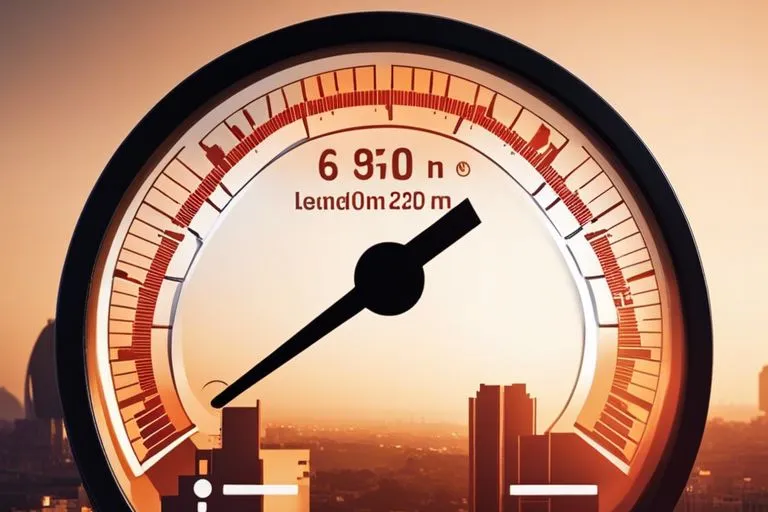Delhi highest temperature 52.3 degrees Celsius : A weather office in Delhi recorded 52.3 degrees Celsius today, the highest temperature ever recorded in the city, prompting widespread concern and immediate investigation by the India Meteorological Department (IMD). This unprecedented temperature, recorded in Delhi’s Mungeshpur area at 2:30 PM, surpasses the previous record of 49.2 degrees Celsius set in 2002.
Unbelievable! Delhi Shatters All-Time Temperature Record at 52.3 Degrees Celsius!

Unprecedented Heat in Delhi
India has experienced its highest-ever temperature today, causing widespread alarm. The IMD is currently investigating whether the sensors used for recording the temperature in Mungeshpur provided accurate readings. If confirmed, this would mark the hottest day ever in India’s recorded history.
Kuldeep Srivastava, head of the IMD’s regional office, explained that the rising temperatures are primarily due to the city’s proximity to the hot winds from Rajasthan. “Parts of Delhi are particularly susceptible to the early arrival of these hot winds, worsening the already severe weather. Areas like Mungeshpur, Narela, and Najafgarh are the first to experience the full force of these hot winds,” he told news agency PTI.
Record-Breaking Temperatures
The temperature recorded today was more than nine degrees higher than the expected maximum, continuing a trend of record-breaking heat. This extreme temperature also surpassed Delhi’s previous highest recorded temperature of 49.2 degrees Celsius in 2002.
The IMD’s primary weather station at Safdarjung Observatory recorded a maximum temperature of 46.8 degrees Celsius, the highest in 79 years. These temperatures have led to a red alert health notice for Delhi, which has an estimated population of over 30 million people. The alert warns of a “very high likelihood of developing heat illness and heat stroke in all ages,” emphasizing the need for “extreme care” for vulnerable populations.
ALSO READ : Scorching Heatwave Returns to Telangana: Temperatures Soar Up to 46°C – Are You Prepared?
Climate Change and Heatwaves
India is no stranger to high summer temperatures, but scientific research has shown that climate change is causing heatwaves to become more frequent, longer, and more intense. The recent extreme temperatures in Delhi underscore the urgent need to address the impacts of climate change.
Impact on Daily Life
As temperatures soar, the national capital reported its all-time high power demand of 8,302 megawatts (MW), as residents turned on power-intensive air conditioning to cope with the heat. Other regions also reported extreme temperatures, with Phalodi in Rajasthan recording 51 degrees Celsius and Sirsa in Haryana hitting 50.3 degrees Celsius.
Temporary Relief
There was a brief respite when it rained in Delhi on Wednesday evening, but this also raised humidity levels, compounding discomfort. Despite the extreme heat, some areas in south Rajasthan, including Barmer, Jodhpur, Udaipur, Sirohi, and Jalore, experienced a temperature drop of up to 4 degrees Celsius due to moist winds from the Arabian Sea. This indicates a potential reduction in heatwave conditions in northwest India.
Future Weather Predictions
Numerical Weather Prediction (NWP) data, which uses computer models to process current weather observations and forecast future conditions, suggest that this cooling trend will extend northwards, bringing gradual relief from the heatwave by May 30. Additionally, the incursion of moist winds from the Bay of Bengal from Thursday is expected to cause a gradual drop in maximum temperatures over Uttar Pradesh.
ALSO SEE : Hyderabad Heatwave: Banjara Hills Hits 43°C as Scorching Weather Grips City
FAQs About the Record-Breaking Heat in Delhi
- What was the highest temperature recorded in Delhi today?
- The highest temperature recorded was 52.3 degrees Celsius in Mungeshpur.
- Is this the hottest temperature ever recorded in India?
- Yes, if confirmed, this would be the highest temperature ever recorded in India.
- What is the previous highest temperature recorded in Delhi?
- The previous highest was 49.2 degrees Celsius in 2002.
- What is causing the extreme heat in Delhi?
- Hot winds from Rajasthan and climate change are primary factors.
- What areas in Delhi are most affected by the heat?
- Mungeshpur, Narela, and Najafgarh are among the hardest hit.
- What measures has the IMD taken in response to the heat?
- The IMD issued a red alert health notice for Delhi.
- How is the power demand affected by the heatwave?
- Delhi reported an all-time high power demand of 8,302 MW.
- What other regions recorded extremely high temperatures?
- Phalodi in Rajasthan (51 degrees Celsius) and Sirsa in Haryana (50.3 degrees Celsius).
- Did it rain in Delhi amid the heatwave?
- Yes, there was brief rainfall on Wednesday evening.
- How does rain affect the temperature and humidity?
- Rain can provide temporary cooling but may raise humidity levels.
- What is the impact of climate change on heatwaves?
- Climate change is making heatwaves more frequent, intense, and longer.
- What are the health risks associated with the heatwave?
- There is a high risk of heat illness and heat stroke.
- What steps can residents take to stay safe?
- Stay hydrated, avoid direct sunlight, and use air conditioning.
- Is there a predicted relief from the heatwave?
- Yes, cooler temperatures are expected to gradually arrive by May 30.
- What role do moist winds play in temperature changes?
- Moist winds can help lower temperatures and provide relief.
- What is the NWP and how does it help?
- NWP uses computer models to forecast weather, predicting relief trends.
- How are vulnerable populations affected by the heat?
- Vulnerable populations are at higher risk of heat-related illnesses.
- What is the highest temperature ever recorded globally?
- 56.7 degrees Celsius in Furnace Creek Ranch, California, in 1913.
- How can businesses cope with the increased power demand?
- Businesses may need to manage energy use and invest in efficient cooling systems.
- What are the long-term solutions to combat heatwaves?
- Addressing climate change, improving urban planning, and increasing green spaces.














